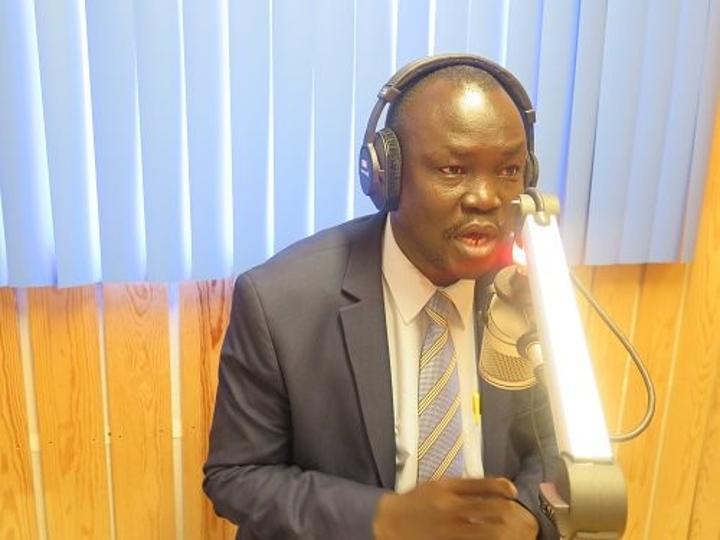Africa-Press – South-Sudan. A senior member of the Other Political Party, (OPP) has warned against the rush for election before implementing the critical provisions in the agreement.
Albino Akol, the spokesperson of the OPP said the OPP was willing to go for election but they cannot risk taking the country back into conflict when certain election prerequisites are not in place.
He was speaking to The City Review during an interview yesterday regarding the OPP stand on the proposed 2023 general elections after the end of the transitional period.
Akol argued that the parties should agree on how the country would be governed, how elections should be held, the size of the government both at the state and national level, before rushing for election.
According to him, the current size of the executive and the legislature would not be the same in a permanent situation as the leaders shall be elected.
“So, what we are calling for is for us to not produce a worse situation than we have now. We have to put certain issues in place,” Akol warned.
“These certain issues according to the agreement, first of all, the reunification of the forces because you cannot enter elections with divided forces. These forces can be used later on to spoil the process of an election,” he explained.
Another critical provision, Akol said, is the permanent constitution-making process, which will guide the country. He said parties to the agreement need to conduct the process of making a permanent constitution, which may take seventeen months or more to complete the process.
Akol who doubles as a member of parliament in the Reconstituted Transitional National Assembly (R-TNLA), stressed that it is only when the permanent constitution is in place that South Sudan can transition peacefully.
“If we rush without this in place, we may end up in a worse situation than we have now because we have peace and stability in the country now and we need to continue like this until we transition to a permanent period without causing any other instability,” he said.
“So, we are saying we are for the election. We need elections but we need to make sure that certain issues are addressed so that we can make sure that the results of the elections are acceptable and power is taken peacefully without any further conflict in the country. This is the position we have as OPP” said Akol.
Furthermore, Akol said as long as all the critical issues are put in place, OPP would be ready to go for elections, noting that another critical issue for that to happen is the political party’s act that will guide political parties that will participate in the elections, saying, “because you cannot go for elections without determining eligible political parties that will participate.”
“Most of these parties to the agreement now are not eligible to participate in elections because they are not registered,” he said.
Another step towards elections that the spokesperson of OPP touched on is conducting a census to determine the number of MPs through the establishment of anti-geographical constituencies for the population of South Sudan to be realized.
According to the peace accord, the election is the last final product of the transitional period of the current unity government that will allow South Sudanese to elect their leaders.
Chapter six of the revitalized agreement and article (6.4) stipulated that the permanent constitution shall be completed no later than twenty-four (24) months following the establishment of the Transitional Period and shall be in place to guide the elections toward the end of the Transition.
And the article (1.20.4) of the agreement stated that Sixty (60) days prior to the end of the Transitional Period, the National Elections Commission (NEC) shall organize elections in accordance with the provisions of the Permanent Constitution adopted pursuant to the Agreement, and shall ensure that the outcome is broadly reflective of the will of the electorate.
For More News And Analysis About South-Sudan Follow Africa-Press






